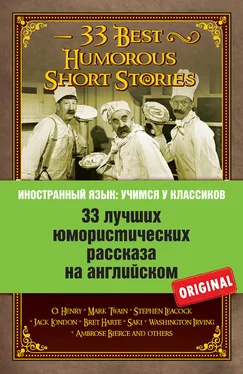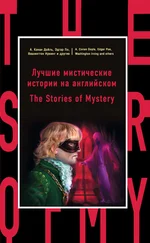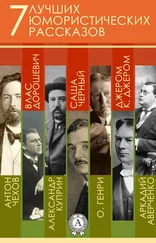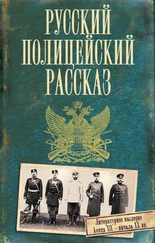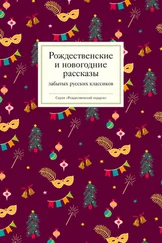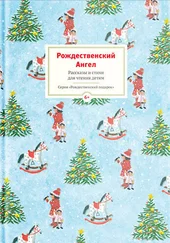But he was a good looker. At the end of the first week we sold him for seventy-five dollars to the Mounted Police. They had experienced dog-drivers, and we knew that by the time he’d covered the six hundred I miles to Dawsonhe’d be a good sled-dog. I say we knew, for we were just getting acquainted with that Spot. A little later we were not brash enough to know anything where he was concerned. A week later we woke up in the morning to the dangdest dog-fight we’d ever heard. It was that Spot come back and knocking the team into shape. We ate a pretty depressing breakfast, I can tell you; but cheered up two hours afterward when we sold him to an official courier, bound in to Dawson with government despatches. That Spot was only three days in coming back, and, as usual, celebrated his arrival with a rough-house.
We spent the winter and spring, after our own outfit was across the pass, freighting other people’s outfits; and we made a fat stake. Also, we made money out of Spot. If we sold him once, we sold him twenty times. He always came back, and no one asked for their money. We didn’t want the money. We’d have paid handsomely for any one to take him off our hands for keeps. We had to get rid of him, and we couldn’t give him away, for that would have been suspicious. But he was such a fine looker that we never had any difficulty in selling him. ‘Unbroke,’ we’d say, and they’d pay any old price for him. We sold him as low as twenty-five dollars, and once we got a hundred and fifty for him. That particular party returned him in person, refused to take his money back, and the way he abused us was something awful. He said it was cheap at the price to tell us what he thought of us; and we felt he was so justified that we never talked back. But to this day I’ve never quite regained all the old self-respect that was mine before that man talked to me.
When the ice cleared out of the lakes and river, we put our outfit in a Lake Bennett boatand started for Dawson. We had a good team of dogs, and of course we piled them on top the outfit. That Spot was along—there was no losing him; and a dozen times, the first day, he knocked one or another of the dogs overboard in the course of fighting with them. It was close quarters, and he didn’t like being crowded.
‘What that dog needs is space,’ Steve said the second day. ‘Let’s maroon him.’
We did, running the boat in at Caribou Crossing for him to jump ashore. Two of the other dogs, good dogs, followed him; and we lost two whole days trying to find them. We never saw those two dogs again; but the quietness and relief we enjoyed made us decide, like the man who refused his hundred and fifty, that it was cheap at the price. For the first time in months Steve and I laughed and whistled and sang. We were as happy as clams. The dark days were over. The nightmare had been lifted. That Spot was gone.
Three weeks later, one morning, Steve and I were standing on the river-bank at Dawson. A small boat was just arriving from Lake Bennett. I saw Steve give a start, and heard him say something that was not nice and that was not under his breath. Then I looked; and there, in the bow of the boat, with ears pricked up, sat Spot. Steve and I sneaked immediately, like beaten curs, like cowards, like absconders from justice. It was this last that the lieutenant of police thought when he saw us sneaking. He surmised that there were law-officers in the boat who were after us. He didn’t wait to find out, but kept us in sight, and in the M. & M. saloon got us in a corner. We had a merry time explaining, for we refused to go back to the boat and meet Spot; and finally he held us under guard of another policeman while he went to the boat. After we got clear of him, we started for the cabin, and when we arrived, there was that Spot sitting on the stoop waiting for us. Now how did he know we lived there? There were forty thousand people in Dawson that summer, and how did he savve our cabin out of all the cabins? How did he know we were in Dawson, anyway? I leave it to you. But don’t forget what I have said about his intelligence and that immortal something I have seen glimmering in his eyes.
There was no getting rid of him any more. There were too many people in Dawson who had bought him up on Chilcoot, and the story got around. Half a dozen times we put him on board steamboats going down the Yukon; but he merely went ashore at the first landing and trotted back up the bank. We couldn’t sell him, we couldn’t kill him (both Steve and I had tried), and nobody else was able to kill him. He bore a charmed life. I’ve seen him go down in a dog-fight on the main street with fifty dogs on top of him, and when they were separated, he’d appear on all his four legs, unharmed, while two of the dogs that had been on top of him would be lying dead.
I saw him steal a chunk of moose-meat from Major Dinwiddie’s cache so heavy that he could just keep one jump ahead of Mrs. Dinwiddie’s squaw cook, who was after him with an axe. As he went up the hill, after the squaw gave up, Major Dinwiddie himself came out and pumped his Winchester into the landscape. He emptied his magazine twice, and never touched that Spot. Then a policeman came along and arrested him for discharging firearms inside the city limits. Major Dinwiddie paid his fine, and Steve and I paid him for the moose-meat at the rate of a dollar a pound, bones and all. That was what he paid for it. Meat was high that year.
I am only telling what I saw with my own eyes. And now I’ll tell you something, also. I saw that Spot fall through a water-hole. The ice was three and a half feet thick, and the current sucked him under like a straw. Three hundred yards below was the big water-hole used by the hospital. Spot crawled out of the hospital water-hole, licked off the water, bit out the ice that had formed between his toes, trotted up the bank, and whipped a big Newfoundland belonging to the Gold Commissioner.
In the fall of 1898, Steve and I poled up the Yukon on the last water, bound for Stewart River. We took the dogs along, all except Spot. We figured we’d been feeding him long enough. He’d cost us more time and trouble and money and grub than we’d got by selling him on the Chilcoot—especially grub. So Steve and I tied him down in the cabin and pulled our freight. We camped that night at the mouth of Indian River, and Steve and I were pretty facetious over having shaken him. Steve was a funny cuss, and I was just sitting up in the blankets and laughing when a tornado hit camp. The way that Spot walked into those dogs and gave them what-for was hair-raising. Now how did he get loose? It’s up to you. I haven’t any theory. And how did he get across the Klondike River? That’s another lacer. And anyway, how did he know we had gone up the Yukon? You see, we went by water, and he couldn’t smell our tracks. Steve and I began to get superstitious about that dog. He got on our nerves, too; and, between you and me, we were just a mite afraid of him.
The freeze-up came on when we were at the mouth of Henderson Creek, and we traded him off for two sacks of flour to an outfit that was bound up White River after copper. Now that whole outfit was lost. Never trace nor hide nor hair of men, dogs, sleds, or anything was ever found. They dropped clean out of sight. It became one of the mysteries of the country. Steve and I plugged away up the Stewart, and six weeks afterward that Spot crawled into camp. He was a perambulating skeleton, and could just drag along; but he got there. And what I want to know is who told him we were up the Stewart? We could have gone a thousand other places. How did he know? You tell me, and I’ll tell you.
No losing him. At the Mayo he started a row with an Indian dog. The buck who owned the dog took a swing at Spot with an axe, missed him, and killed his own dog. Talk about magic and turning bullets aside – I, for one, consider it a blamed sight harder to turn an axe aside with a big buck at the other end of it. And I saw him do it with my own eyes. That buck didn’t want to kill his own dog. You’ve got to show me.
Читать дальше
Конец ознакомительного отрывка
Купить книгу
